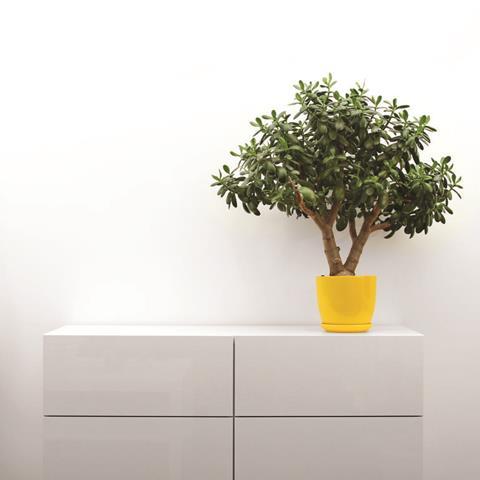
Why spiritual practice?

We sense that the time has come again for the Christian faith to be practised, lived and loved, more than just learned as knowledge (as important as that is). The disciples learned a way of life from being with Jesus as well as from hearing him teach. So the Christian path is something that we do, even something that we become, as much as something that we believe. We hope that you personally will find this reorientation towards a life rooted in spiritual practice liberating and life-enhancing, and that this will be an experience that you will share with the children you work with. When working with this material, ask yourself:
- What could this practice look like for me?
- What could this practice look like in the lives of these children?
- How can I help them to explore these possibilities in the time we have together and in other settings (home / family meal / school / church / all-age service etc)?
Pilgrimage: a special journey
Background
Place in the Christian tradition
In the monastic life there has always been a movement towards simplicity, usually expressed through a vow of poverty. This has acted as both a means for the community to identify with the poorest in society and a way of focusing on God rather than on the things that surround or consume us. In both of the Gospel versions of Jesus’ Beatitudes, his teachings on poverty of spirit (Matthew 5) and on poverty (Luke 6) come first. This emphasis is a call to live in the world with simplicity, and with love for God and neighbour.
Our contemporary context
Contemporary living involves our compliance with a complex network of interconnections. Even for children, life is becoming increasingly complex and threatening to rob them of something of the carefree nature of life enjoyed by previous generations. In a wider context, the state of the planet and the condition of human societies are such that the possibility of living more simply is becoming a necessity as well as the good and right thing to do.
The practice
This month’s practice
Building on the previous practice of generosity, this month’s practice of simplicity encourages children to begin to adopt a simpler lifestyle. This will involve asking them to consider their attitude to possessions, their ecological impact and the focus of their lives.
Practice principles
There are three principles at work in this practice. Each principle invites us to ask these questions of ourselves: how could we live more simply? and what might happen if we do so?
Living simply: with possessions
There’s something lovely about an object that has been made well, even beautifully, that gives us pleasure. That’s fine, but the things we own can very easily come to own us. It’s a difficult but important task to learn how to enjoy things without becoming consumed by them; holding them lightly so that their hold on us is light.
Living simply: with the Earth
As humans we have been at best negligent and at times deliberately destructive towards the Earth, our home within God’s amazing creation. As the Church we have been slow to remember and step into our calling by God to care for the earth and her creatures. This needs our urgent attention, and our children will need to embody a new way of living simply with and for the Earth.
Living simply: with the direction of our lives
Care needs to be taken here not to limit the scope of children’s experimentation, but it can be good for a child to just begin to sense what might be ‘their thing’ and then to give it some focused time and attention. Perhaps you could raise the possibility that, in their enjoyment of something, God might be calling them to give themselves to it, and that in time this might be a small gift for the world’s healing.
The practice in your main settings
Solitary ideas
Childhood is rightly a time of exploration, working out what matters to us. Ask each child to devote their spare time for a week to one thing in particular that they like doing: perhaps a creative practice, learning a musical instrument, or a sport. Explain that other things may need to be left alone, just for a week, to see what happens when we focus on one thing. Have a conversation together about what happened.
Ideas for the family
The cost of living is an issue for most families. Money is just one resource; time and attention are also vital. Have a conversation about how we use all our resources as a family. What really matters to us? How can we live more simply? How can our simplicity be a gift to others?
Ideas for a Sunday School group
Find or create a suitable environment for the children to walk barefoot, perhaps on a beach, garden, sand or carpet, and ask the children how this feels. Explain how walking barefoot means that we have to walk more carefully, so that we don’t damage the Earth (flowers, plants) or ourselves. Lead into a conversation around what is being said about how we need to respond to climate change (our churches are increasingly publishing their own resources for this purpose). Look for a collective action you could take as a group.
Ideas for a family service
Focus the service around the opening Beatitude of Jesus on poverty or poverty of spirit. Ask the question, ‘What might this mean for us as a church?’ You could combine this with conversations with people working locally or nationally with issues around poverty (eg Church Urban Fund) and / or care for the Earth (eg A Rocha).
An alternative might be to focus on the direction of our lives and our sense of God’s calling. You could have a conversation with someone who has become accomplished in a particular area of life. How did that focus come about? How did they sense God’s calling? How might ‘their thing’ be bringing some good to the world?
Other ideas for this month’s practice
My (Ian Adams’) poem ‘Run Barefoot’ in Unfurling may be inspiring in an all-age or adult context. The Beloved Life project has a body prayer for the Beatitudes; a wonderful way to allow the Beatitudes of Jesus to seep into us. You can download a storyboard version here.






































